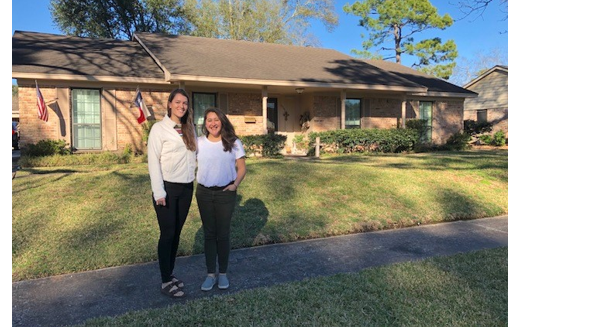Wealth inequality, which disproportionately affects marginalized groups, is a complex issue driven by many factors, including homeownership. Restricted access to credit, which enables millions to finance homes over 30 years or more, plays a significant role in the racial and generational wealth divide within the United States.
The Calvert Mortgage Access Fund seeks to expand access to homeownership by investing in mortgages provided to underserved communities, including minorities, low-income households and first-time homebuyers, among others. We study mortgage markets to understand the types of loans, terms and unique situations that could position our strategy well and connect underserved middle-class Americans with homeownership opportunities. From an investor's perspective, we believe a mix of agency and non-agency mortgage-backed securities, along with other mortgage-related assets, has the potential to help diversify and add value to a portfolio.
Fallout from the Global Financial Crisis
The 2008 Global Financial Crisis was fueled in part by predatory lenders offering subprime mortgages to low-income homebuyers. Coupled with excessive risk-taking by financial institutions, this led to the infamous "housing bubble burst," with millions defaulting on their loans. As a result, lenders tightened standards under the "Qualified Mortgage" (QM) rule, introduced in 2010, ultimately making it harder than ever to qualify for a home loan in the U.S.
The QM standards, required for all government-backed loans, were created to ensure borrower ability to repay and limit default risk. On its face, this is a reasonable standard. However, many groups of workers—such as small-business owners, "gig" economy workers and the self-employed—do not get an IRS Form W-2 wage and tax statement showing annual income and tax withheld. So, they struggle to provide the documentation needed to meet QM criteria, even though they have consistent income and the overall ability to repay a mortgage.
Using non-QM mortgages for nontraditional borrowers
This is a gap our mortgage strategy seeks to fill by way of "non-Qualified Mortgages" (non-QM), which typically feature less strict income and credit requirements and use nontraditional methods to verify a borrower's ability to repay the loan. In the non-QM market, lenders have more flexibility to assess a borrower's financial situation and creditworthiness.
Some non-QM loan programs cater to investment properties, some to wealthy foreign nationals, and others to even more niche cohorts. The non-QM segment our strategy mostly focuses on is "bank statement mortgages." Here, the lender reviews checking account activity for consistent cashflow and verifies the borrower has at least nine months of assets in reserve. For comparison, federally backed Ginnie Mae guaranteed FHA mortgages require one month of reserve assets or none at all, and Fannie Mae loans have no reserve asset requirement.
We work with Community Development Financial Institutions (CDFI), U.S. Treasury certified lenders, whose purpose is to promote economic revitalization and community development in low-income communities. Champions Funding is a CDFI with whom we have worked since 2024 to help in Calvert Mortgage Access Fund's mission to expand homeownership. As loan originators, Champions finds and vets deserving borrowers who meet the Fund's criteria, examples of whom are below.
Calvert and Champions at work
One first-time home buyer whose mortgage the Fund has invested in is Rafi. Rafi is self-employed and was helped with a mortgage and new home: "We had been planning to move to Texas and purchase our first family home there. Since my employment and income situation is unique, most lenders turned us down for traditional financing, but thanks to Champions, I was able purchase a home and get my children situated in school. Without this type of loan, I wouldn't have been able to provide that opportunity for my family."

Rafi and his family are the type of nontraditional borrowers the Fund's strategy was created to help. They have the ability to repay their mortgage and are community-oriented. The family's excellent credit profile, high credit score, low loan-to-value mortgage ratio and over a year's worth of reserve assets made this loan a compelling choice.
Caroline and her wife are another example of successful borrowers through Champions. They wanted to purchase the home that previously belonged to Caroline's grandparents. "I am so excited to see this home back in the family," says Caroline, a registered nurse. Again, she was a well-qualified buyer who met rigorous, nontraditional and more inclusive loan standards, which weren't factored into a previously denied government loan.

Seeking positive outcomes for borrowers and investors alike
The Fund's strategy is focused on supporting homeownership for families traditionally underserved by the mainstream financial system. We do this in two ways. First, we work with mortgage originators who require potential borrowers to complete the Framework Online Homebuyer Course, which meets Department of Housing and Urban Development guidelines, is accepted by Fannie Mae and Freddie Mac, and educates borrowers about how much they can afford to spend on a home and how to succeed in the mortgage process.
Second, after loan origination through one of our partners, we direct the servicer to apply accepted servicing practices aimed at keeping borrowers in their property. While borrowers may pause mortgage payments due to unforeseen life events, we have ensured that loan modification and forbearance policies have been implemented to allow homeowners time to get back on their feet, as needed. This reduces costly foreclosure risk, benefiting borrowers and investors alike.
Bottom line: Significant gaps in access to homeownership exist. A small number of non-QM mortgage originators have emerged to extend financing to nontraditional applicants. By providing the capital needed to originate non-QM loans, Calvert helps many first-time homebuyers and others in underserved populations secure financing and purchase new homes, thereby helping close the wealth gap and plant community roots. Investing in Calvert Mortgage Access Fund can provide exposure to a distinct market segment that offers attractive return potential while helping to address wealth inequality and promote broader access to homeownership.
Important disclosure:
Featured Borrowers are clients of Champions and received compensation for their testimonials from Champions. Neither the Fund nor Calvert has provided any compensation for these statements and commentary. The Borrowers are not clients of Calvert and are not investors in the Calvert Mortgage Access Fund and have not endorsed the Fund or Calvert. Their experience may not be representative of the experience of other customers of Champions, and their testimonial is no guarantee of future performance or success.


